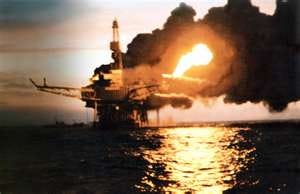Disasters that Built Process Safety: Piper Alpha (1988)
This paid post is the fourth in a series that describes disasters that led to the formation of the Process Safety Management (PSM) discipline.
The Series
The posts in this series are:
Flixborough (1974)
Bhopal (1984)
Seveso (1976)
Piper Alpha (1988) (this one)
Toulouse (2001)
Texas City Refinery (2005)
On July 6, 1988, the Piper Alpha oil production platform, located about 120 miles northeast of Aberdeen, Scotland, was destroyed in a series of explosions and fires. Operated by Occidental Petroleum, Piper Alpha was producing roughly 10% of the UK’s North Sea oil and gas at the time. It remains the deadliest offshore oil disaster in history, killing 167 workers; only 61 survived.
What Happened
Routine maintenance was being performed on a condensate injection pump. A pressure safety valve (PSV) had been removed, so a blind flange was temporarily installed. The flange had not been fully pressure-tested; in fact, it the bolts were only hand-tight.
Keep reading with a 7-day free trial
Subscribe to The Process Safety Report to keep reading this post and get 7 days of free access to the full post archives.


